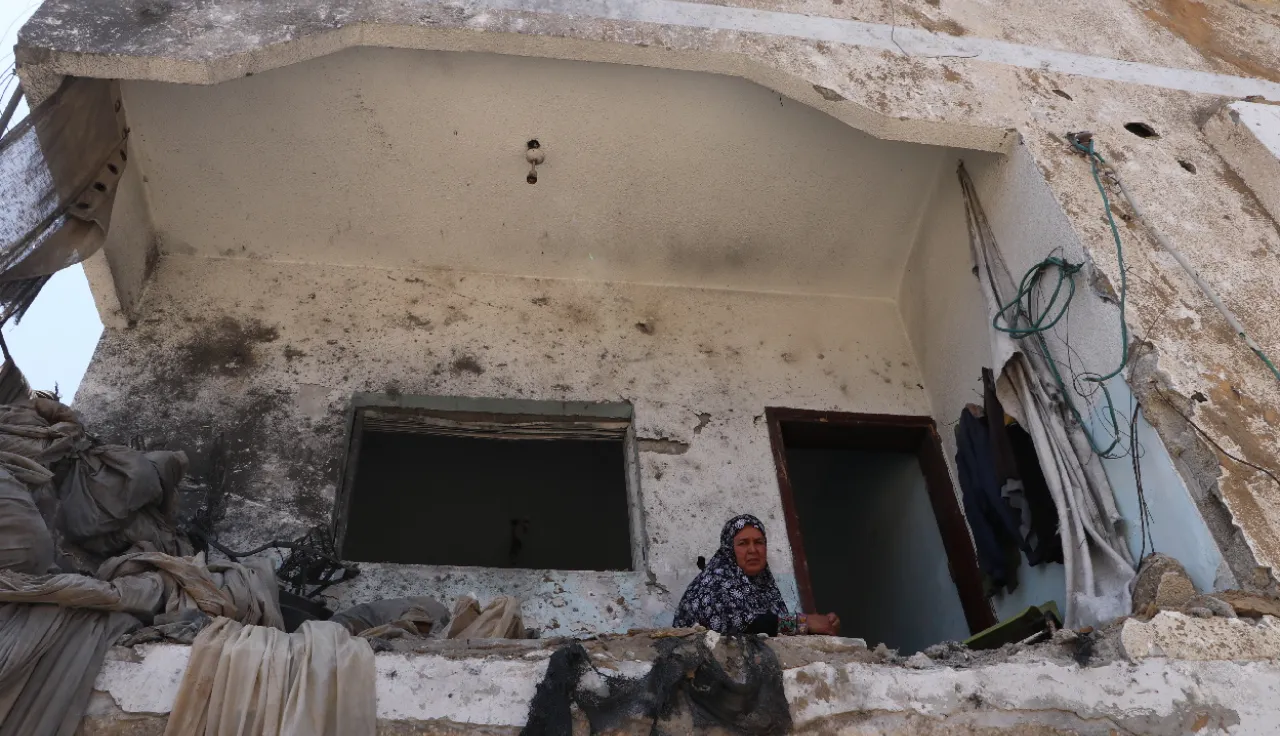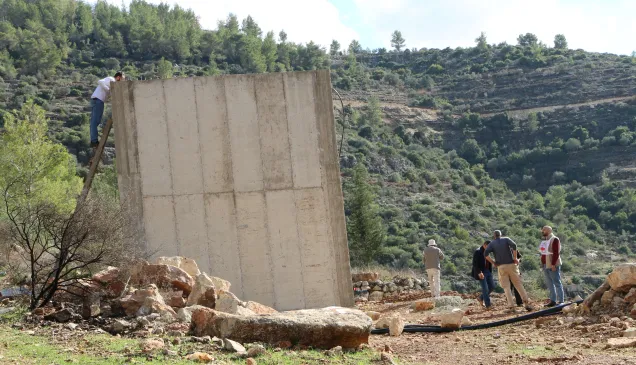Israel And the Occupied Territories: May 2023 Armed Hostilities Facts & Figures

Armed hostilities between Israel and armed groups in Gaza broke out in May 2023 for five days. The violence left dozens of people dead, and hundreds injured and displaced. It also damaged property and traumatized many others who have already survived previous rounds of hostilities. The closure of crossings between Israel and the Gaza Strip prevented Gaza's residents from accessing humanitarian services and limited supplies for essential services.
We worked closely with our partners, including local authorities and service providers, as well as the Palestine Red Crescent Society (PRCS) in Gaza and Magen David Adom (MDA) in Israel to respond to the most urgent needs in a timely manner. This is alongside longer-term programmes and projects, designed to mitigate the most severe humanitarian consequences during emergencies.
Below is a summary of our response so far, including ongoing programmes that supported this response, Know more through this report.
Dialogue on Respect for International Humanitarian Law
- Engaged the parties to the armed conflict to remind them of their obligations under International Humanitarian Law (IHL).
- Monitored respect for IHL and the humanitarian consequences of the hostilities in Gaza and Israel and raised concerns with the parties to the conflict as part of our continuous bilateral and confidential dialogue.
Meeting Emergency Needs
- Following a joint assessment with PRCS, 193 affected families were visited to verify damage to their homes. 151 displaced families (whose houses were completely or severely destroyed) received a cash grant (approx. USD 610 per family), in addition to essential household items, to meet their immediate and basic needs for the next three months.
- The ICRC and PRCS jointly conducted awareness sessions on the risks of unexploded ordnances (UXO) for 567 people, 90% of whom were children, to assist families to avoid risks as they begin to rebuild their lives. In addition, a social media campaign was launched to raise awareness towards risks associated with explosive remnants of war, reaching over 8,300 people.
- Conducted a joint assessment with MDA to assess damage to residential buildings and the general effects of the hostilities on the civilian population in Israel.
- Repaired or replaced solar panels and windows at Three health facilities in Gaza, damaged during the hostilities.
Enabling Emergency Response
- Supported the health authorities in Gaza with a war-wounded kit with the capacity to treat up to 50 seriously injured people, and other medical items.
- Through local partners in Gaza, provided water pipes from emergency stocks, which supported repairs to wastewater management systems during and after the hostilities.
- Supported the Explosive Ordnance Disposal Unit in Gaza with fuel, enabling their operational response.
- The PRCS emergency medical service (EMS), which receives technical and financial support from the ICRC, successfully evacuated 104 people – 14 dead, while 90 had been injured. The PRCS EMS also transferred 700 patients to hospitals for further medical assistance.
- 120 PRCS community-based first responders were integrated into the EMS teams, further contributing to the overall response.
- The PRCS in East Jerusalem facilitated the transfer of acute medical cases from Gaza to hospitals in Jerusalem and the West Bank (55 transfers).
Strengthening the Resilience of Essential Services in Gaza to Respond to the Humanitarian Consequences of Hostilities
Ongoing humanitarian programmes and activities of the ICRC contributed to strengthening the ability of key systems and services in Gaza to continue to serve the civilian population during the hostilities. This includes:
- Upgrading and rehabilitation of Shifa Hospital Emergency Department, increasing capacity to treat a mass influx of injured people due to its status as the main referral hospital during hostilities in Gaza City.
- Installation of dedicated powerlines, allowing a more reliable electrical delivery to key services during escalations to key water, wastewater and health facilities.
- Installation of remote-controlled electrical switches on network, increasing control of electrical service providers and ensuring constant provision of electricity, despite damages common during escalations.
- Installation of remote-controlled systems in water and wastewater facilities,cdecreasing the need for exposure to dangerous maintenance and operation movement by water service provider's employees and enabling understanding of specific damages, thereby decreasing disruption of the system.
- Providing and maintaining heavy equipment vehicles, improving the efficiency of water service provider's employees when repairing damages made to water and wastewater network.
- Distributed of ecological traps (bio-traps) to farmers as an alternative to chemical pesticides, allowing ongoing protection of trees against pests, even when escalation dangers restrict movements.
- Rehabilitating poultry farm sheds with sturdier material (metal) allowing for greater protection against debris.



